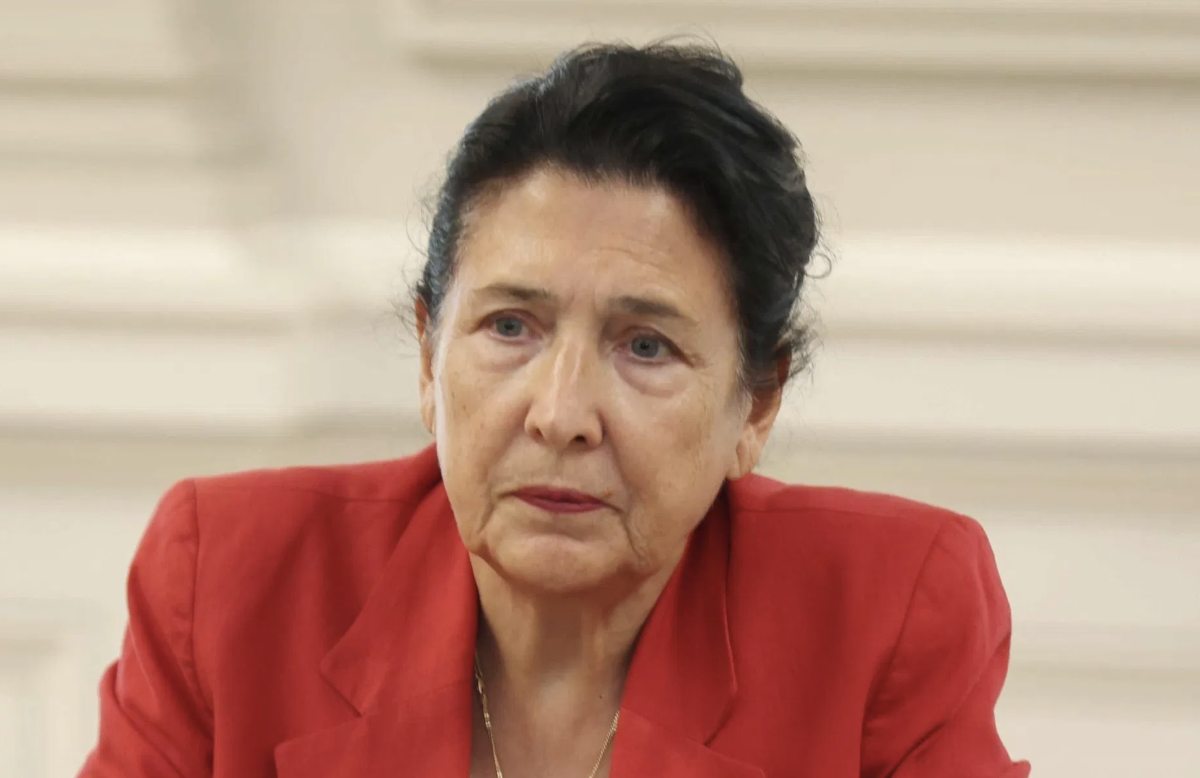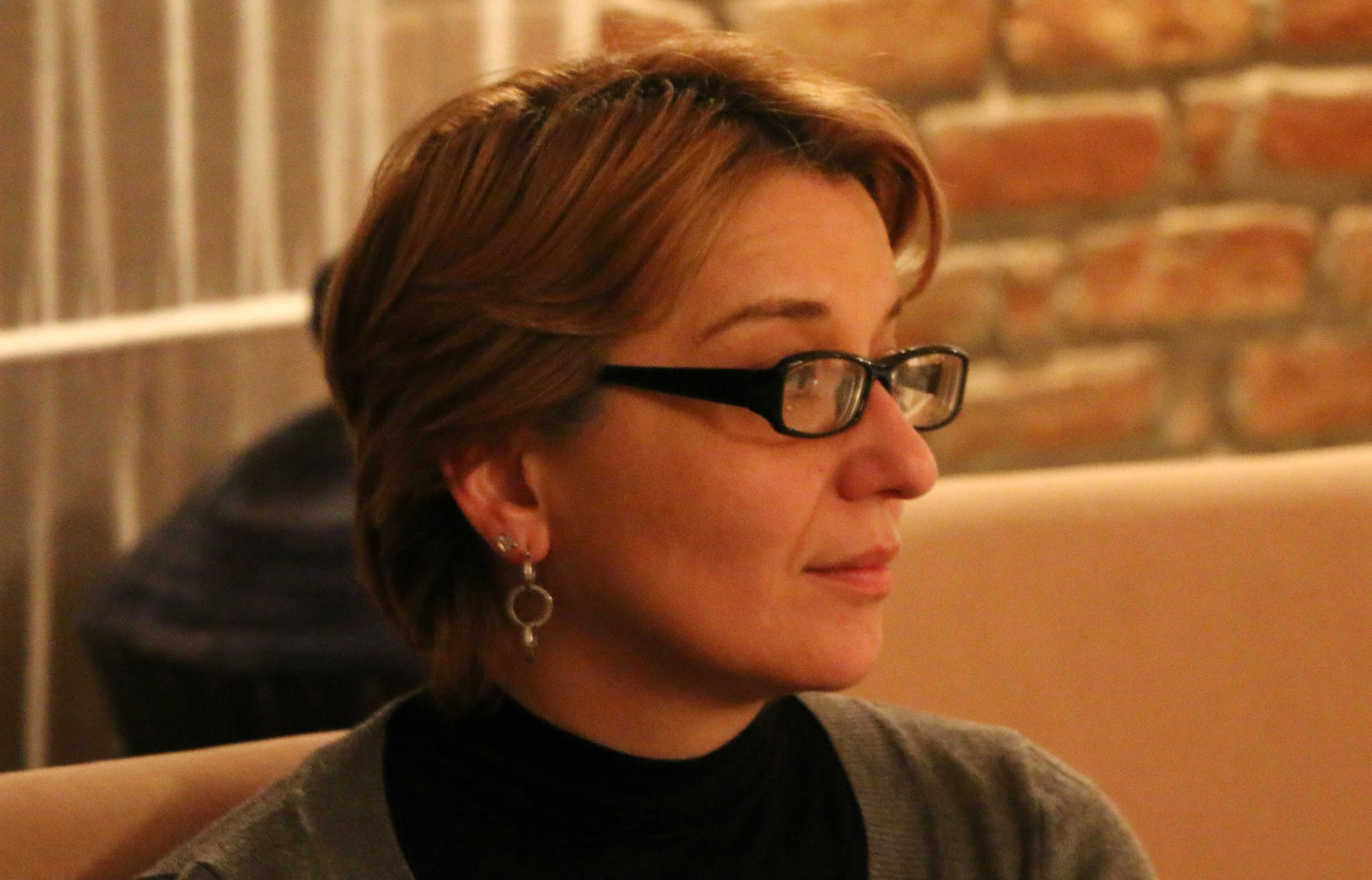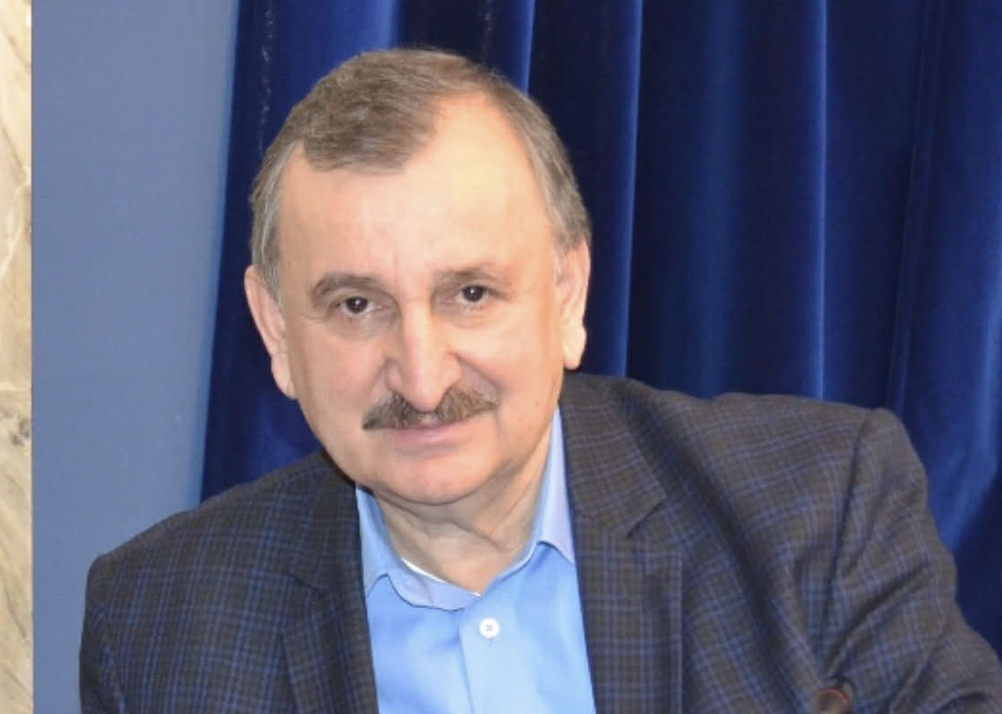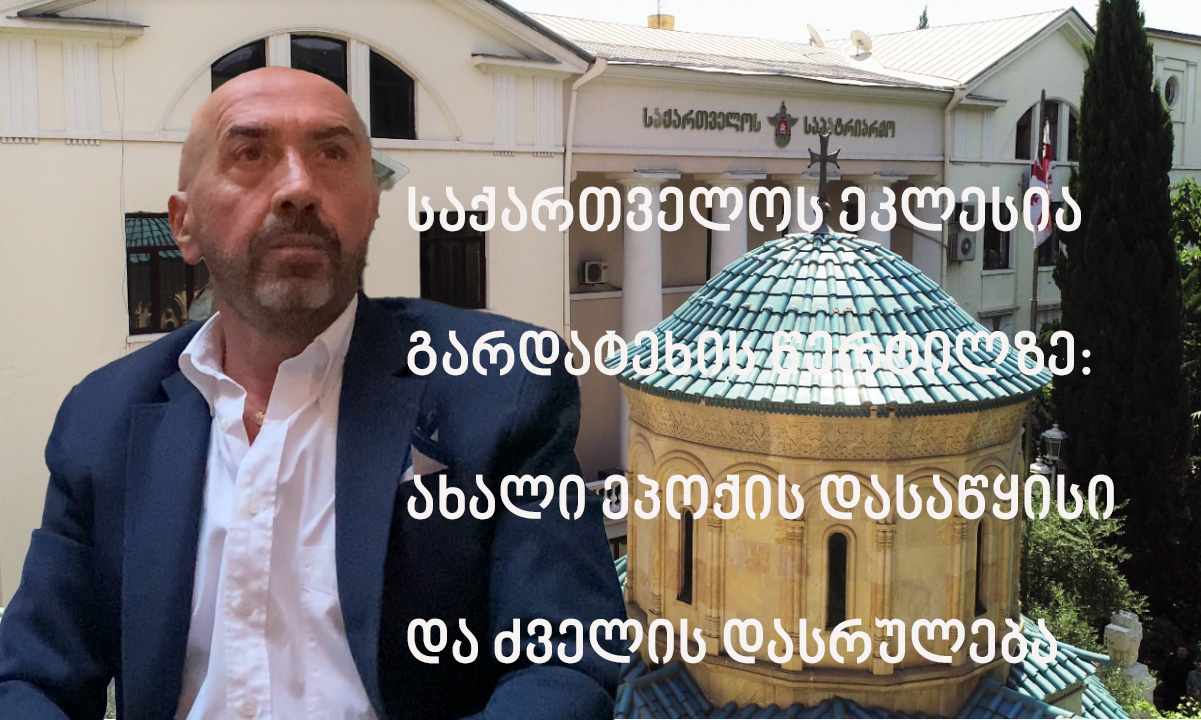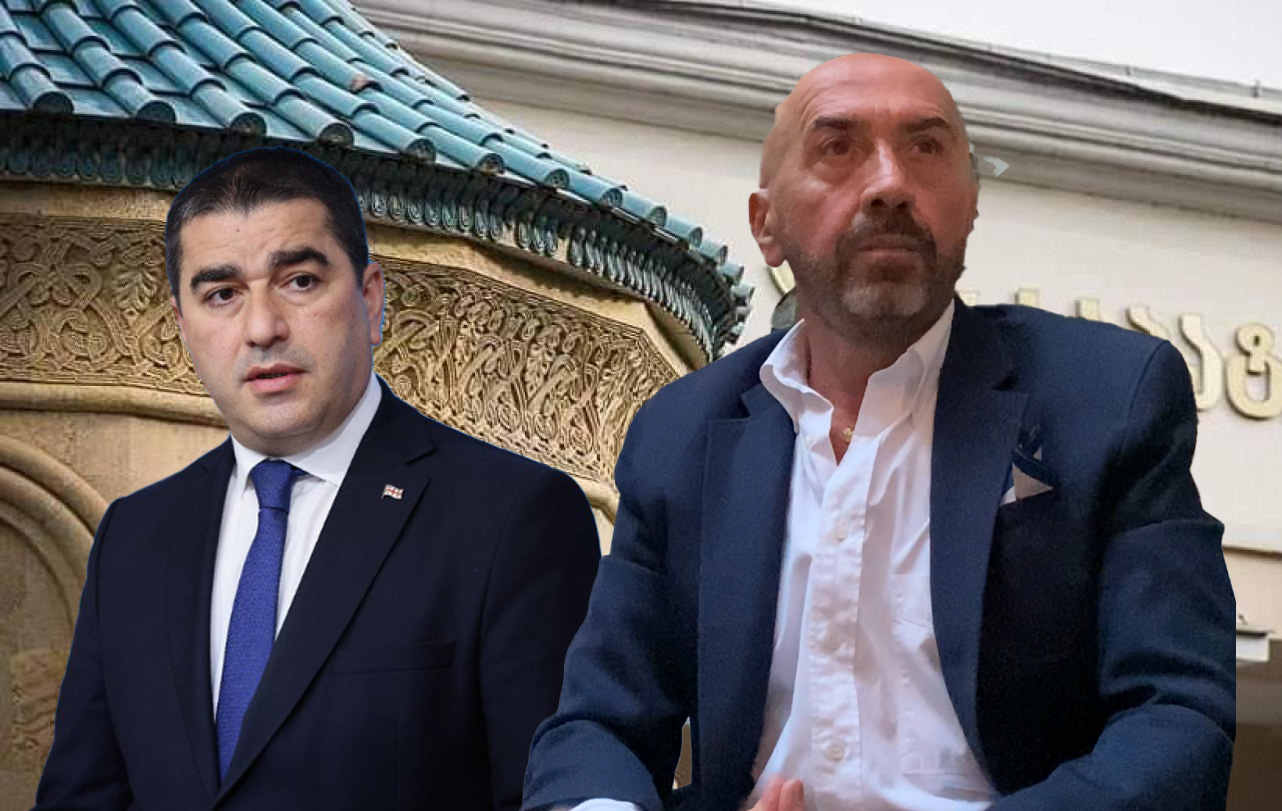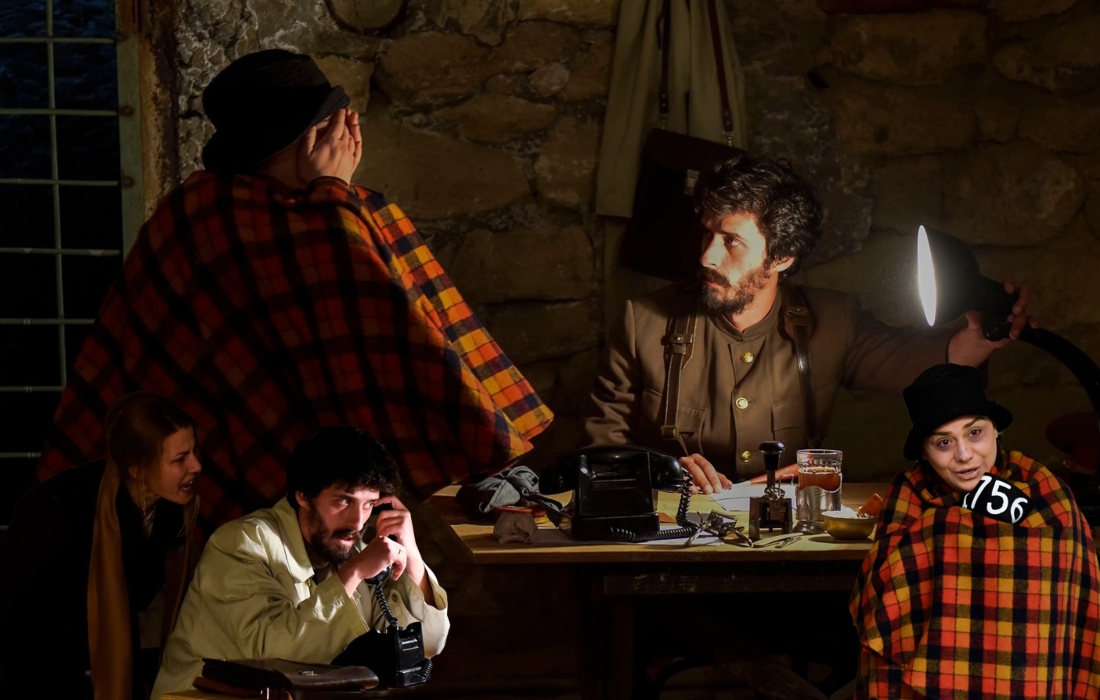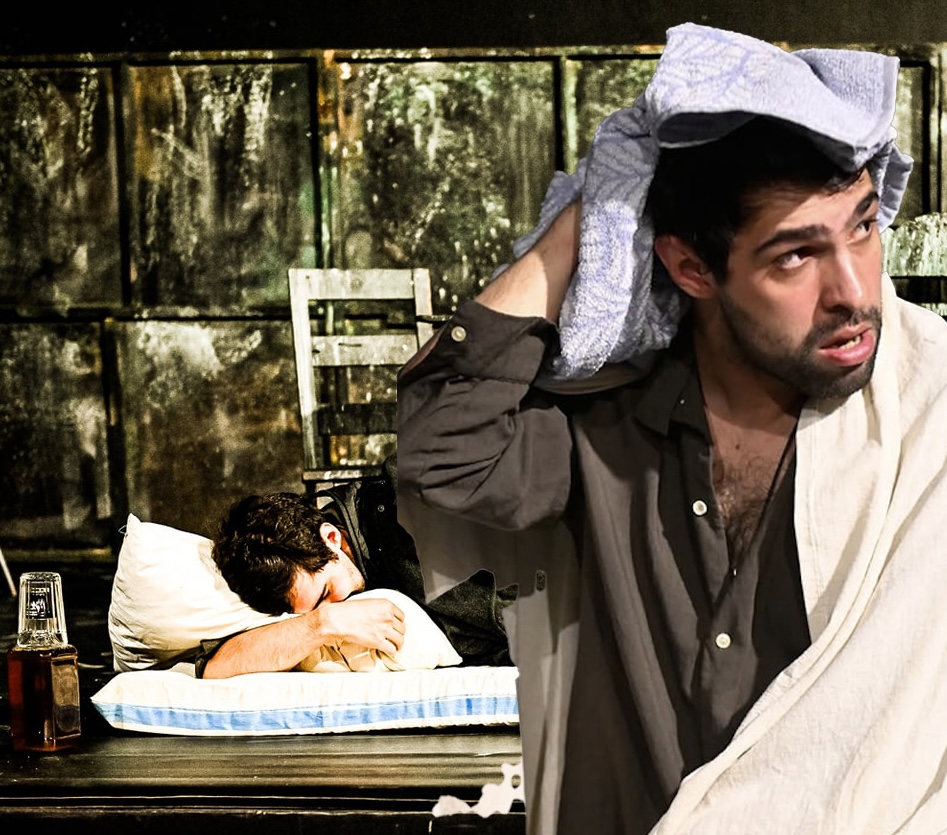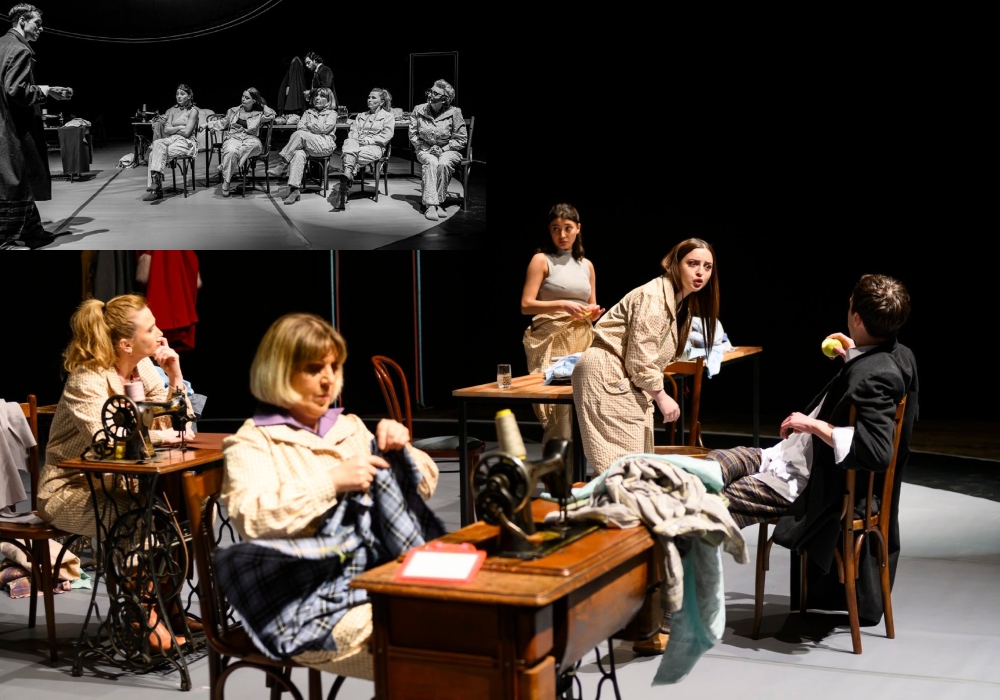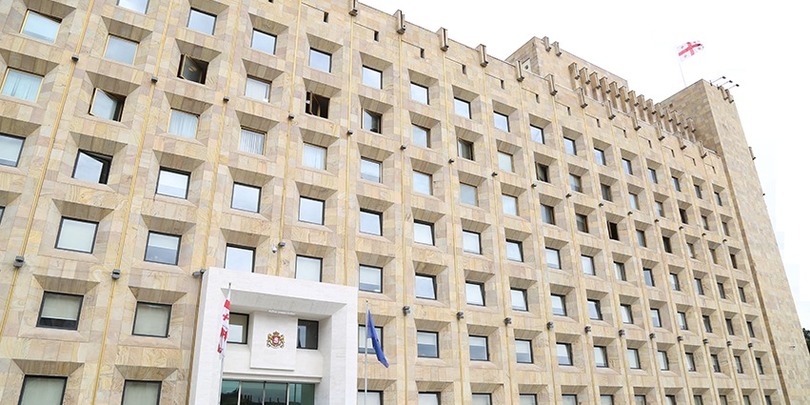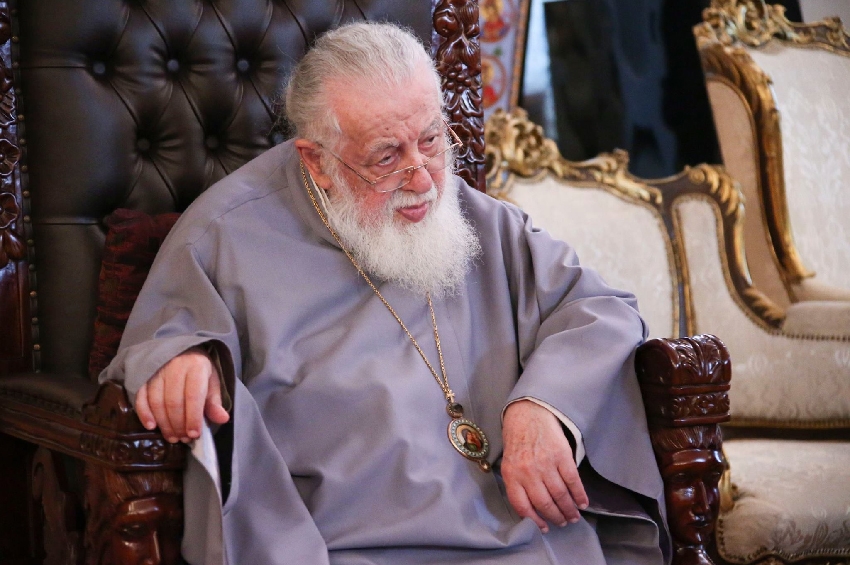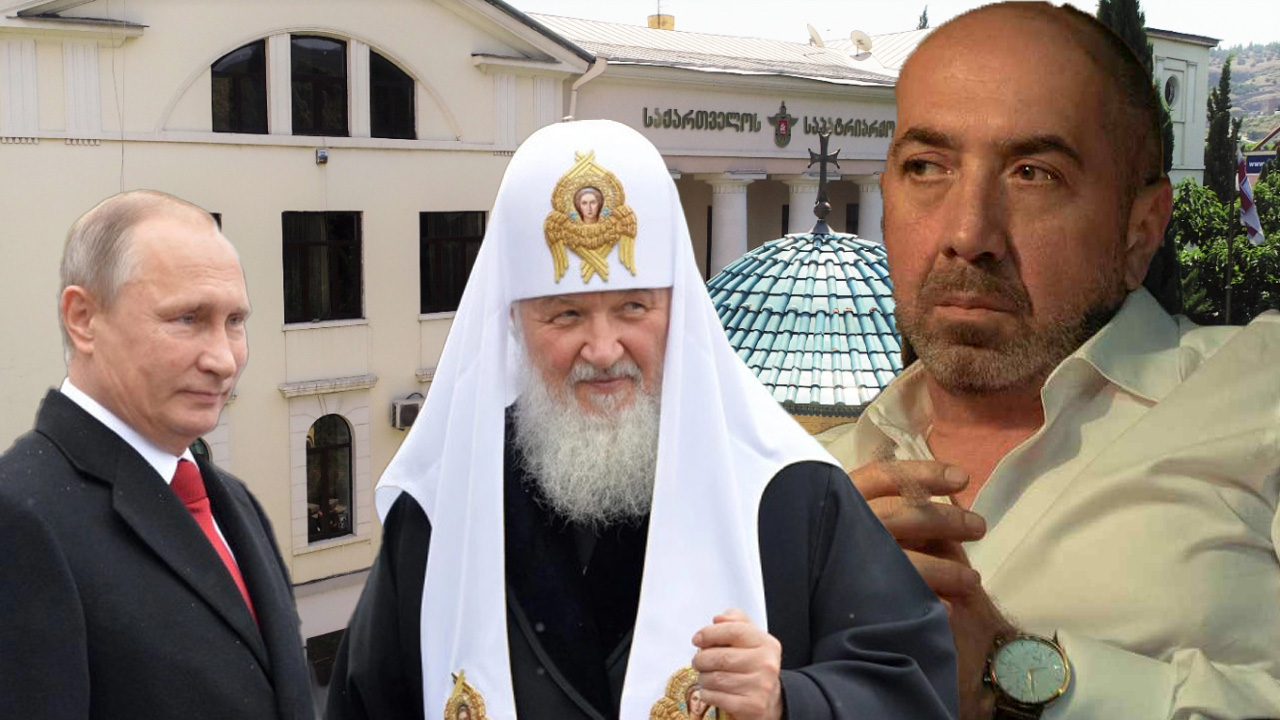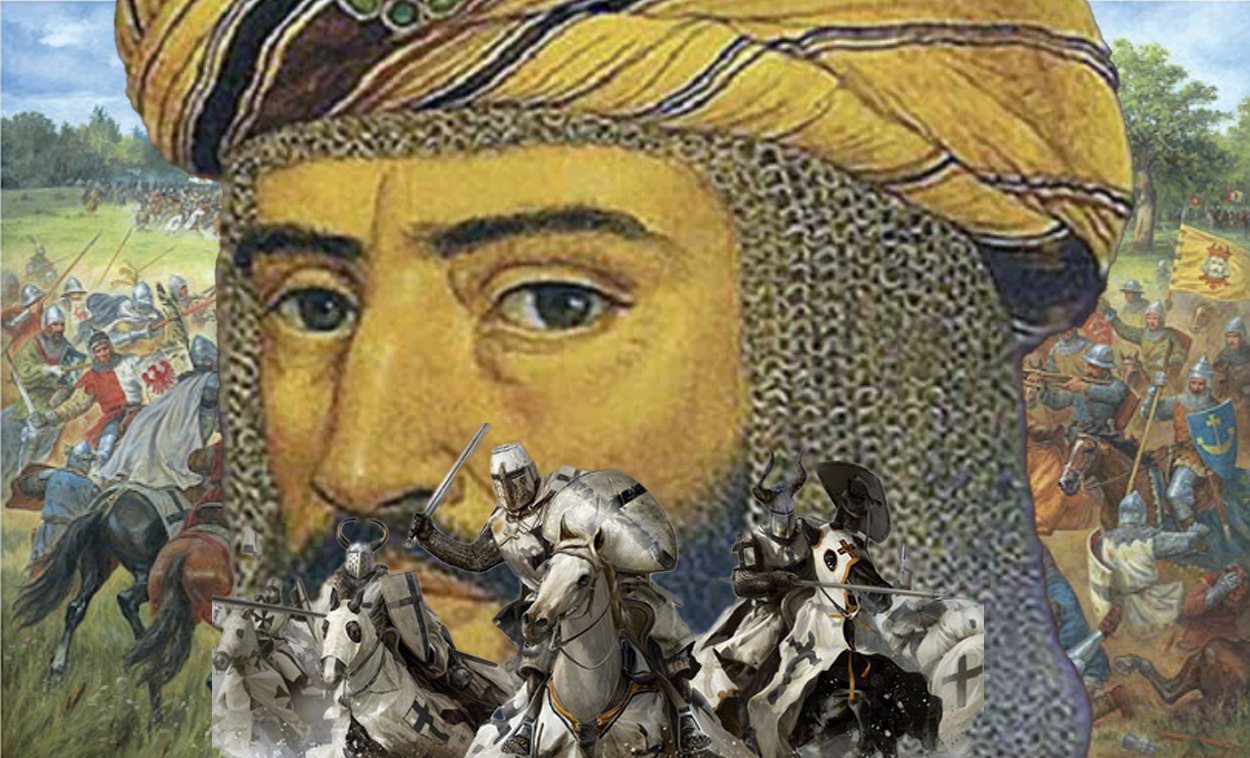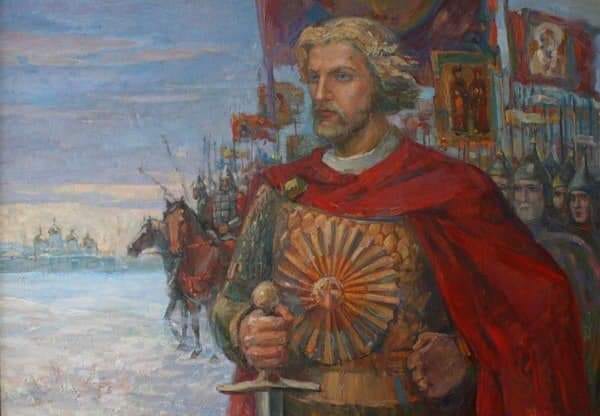კათოლიკური და ქართული ეკლესიების ურთიერთობები შუა საუკუნეებში ახალი წყაროს შუქზე/Relations between the Catholic and Georgian Churches in the Middle Ages According to New Sources
01.02.2021 ნახვები: 2138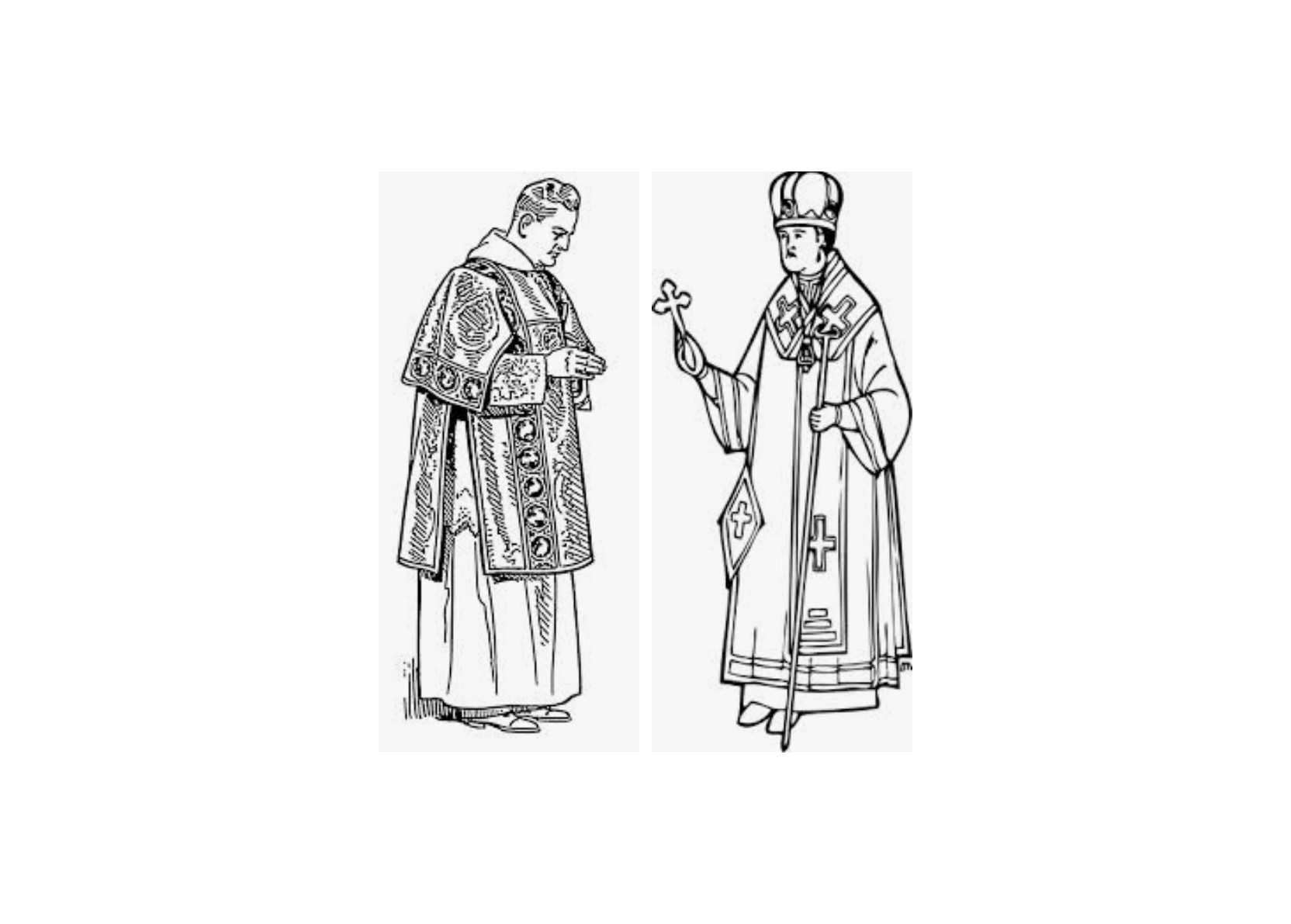
ბექა ჭიჭინაძე/Beqa Chichinadze
წინამდებარე წერილში ჩემი მიზანია კათოლიკური და ქართული ეკლესიების ურთიერთდამოკიდებულების მოკლე მიმოხილვა ნაკლებ ცნობილი და უცნობი (ლუდოვიკუს მამბურგუსი) წყაროების მიხედვით, ამიტომაც უარს ვამბობ საკვლევი საკითხის ირგვლივ არსებული კარგად ცნობილი წყაროების - პირველყოვლისა კი გიორგი ჴუცეს-მონაზონისა და ჯრუჭის სვინაქსრის ცნობების განხილვაზე.
შეიძლება ითქვას, რომ მართლმადიდებელთაგან ქართველები იყვნენ ერთადერთნი, რომელნიც დიდი სქიზმის შემდეგაც კეთილგანწყობილ ურთიერთობებს ინარჩუნებდნენ რომის ეკლესიასთან, რომელიც თავის მხრივ საქართველოს ეკლესიას ბერძნებისაგან განსხვავებით მართლმორწმუნედაც კი მიიჩნევდა.
არსებობს კათოლიკე ავტორთა მრავალი ცნობა ქართველთა სარწმუნოებრივი მრწამსის შესახებ, მაგრამ ხშირ შემთხვევაში ისინი კერძო მოსაზრებას წარმოადგენენ და არ გვაძლევენ მყარი დასკვნის გამოტანის საშუალებას თუ როგორი დამოკიდებულება ჰქონდა კათოლიკურ ეკლესიას ოფიციალურად საქართველოს ეკლესიასთან. მაგრამ ჩვენს ხელთაა ერთ-ერთი უადრესი, სათანადოდ გაუთვალისწინებელი ცნობა, რომელიც კონკრეტული დასკვნის გამოტანის საშუალებასაც იძლევა - ავგუსტინელთა მონასტრის (ბედფორდშირის საგრაფოში) ანალები, მე-13-საუკუნის პირველი ნახევარი:
,,Eodem anno [1221] sicut Honorius Papa tertius scripsit omnibus ecclesiis: "Rex David, qui vulgo dicitur Presbyter Johannes, habuit conflictum cum soldano Persidis, et eo fugato, per viginti quatuor dietas obtinuit rex Perside castra et civitates munitas, ita quod non distabat a famosissima civitate Baldas, ubi est papae paganorum sedes specialis, nisi per decem dietas. Populus etiam Georgianus in armis strenuus, in fide catholicus, contra Saracenos sibi vicinos guerram movit". (ХАУТАЛА 2015:116)
,,იმავე წელს [1221], პაპმა ჰონორიუს მესამემ ამცნო ყველა ეკლესიას: ,,მეფე დავითი, რომელსაც უწოდებენ პრესვიტერ იოანეს, დაუპირისპირდა სპარსეთის სულთანს და უკუაქცია იგი, მეფემ დაიპყრო სპარსეთის გამაგრებული ციხეები და ქალაქები 24 დღის განმავლობაში; ისე, რომ ქალაქი ბაღდადი მისგან მხოლოდ ათი დღის სავალით იყო დაშორებული, სადაც მდებარეობს წარმართი ქურუმის უპირველესი რეზიდენცია. ამასთანავე, ქართველმა ხალხმა, ომში მამაცმა, რწმენით - კათოლიკემ, დაიწყო ომი მეზობელ სარკინოზებთან". (ქართველები კათოლიკედ არიან გამოცხადებული მე-13 საუკუნის კიდევ ერთ წყაროში - ალბერიხის ქრონიკაშიც).
როგორც ვხედავთ ამ შემთხვევაში ქართველებს კათოლიკედ მიიჩნევს კათოლიკური ეკლესიის თავი და არა მხოლოდ ცალკეული კერძო პირი, სწორედ ამიტომაა ეს ცნობა გამორჩეულად მაღალღირებული.
ქართველთა კათოლიკედ მიჩნევის მიზეზების პოვნა შეიძლება საქართველოს ეკლესიის დიდი მამის - არსენ იყალთოელის შრომებშიც. კერძოდ, ფუძემდებლურ საეკლესიო დოკუმენტში - დოგმატიკონში შეტანილი ტრაქტატების თარგმანებში:
1 - დოგმატიკონის ბერძნულ ტექსტში იხსენიება მხოლოდ ოთხი მამამთავარი ხუთის ნაცვლად, რადგანაც დიპტიქიდან ბერძნებმა პაპი ამოშალეს, საქართველოს ეკლესიის ერთ-ერთი ყველაზე დიდი მამა, დავით აღმაშენებლის მოძღვარი არსენი ქართულ თარგმანში ამატებს მეხუთეს და რიგით პირველს - პაპს !
2 - ბერძნულ ტექსტში (ნიკიტა სტითატის) პოლემიკა მიმართულია ლათინთა (ევროპელთა) და სომეხთა წინააღმდეგ, ქართულ თარგმანში არსენ იყალთოელი ყველგან იღებს ლათინთა სახელს, სომხებისას ტოვებს. (მაია რაფავა).
ამ უცნაურ გარემოებას იმით ვერ ავხსნით, რომ ლათინებთან პოლემიკა ტერიტორიული დაშორების გამო ქართველებისათვის აქტუალური არ იყო, და თითქოს ამიტომ მოხდა განსახილველი ტექსტიდან ლათინთა კრიტიკის ამოღება, სინამდვილეში ტექსტიდან ლათინთა კრიტიკის ამოღების რეალურ მიზეზს ისევ არსენთან ვხვდებით - მან ბერძნებისაგან ამოშლილი პაპი ისევ დააბრუნა დიპტიქში, რასაც ლოგიკურად უნდა მოყოლოდა ტექსტიდან პაპის ერეტიკოსობაში ბრალდებების ამოშლაც. ზემოთქმულიდან ვხედავთ, რომ კათოლიკური ეკლესიის სიმპატია ქართული ეკლესიისადმი არ ყოფილა ცალმხრივი. საერთოდ, კათოლიკეთა დამოკიდებულება ქართველთა მიმართ არ იყო ისეთი ქედმაღალი და ეჭვნარევი, როგორიც თანამორწმუნე ბერძნებისა, ამმხრივ საინტერესოა მანდევილის ცნობა, რომელიც იმდენად კეთილგანწყობილია ქართველ ქრისტიანთა მიმართ, რომ ზოგ რამეში მათ უპირატესადაც კი წარმოაჩენს:
,,უწყოდე, რომ ამ სამეფოებში, საქართველოში, აფხაზეთში და მცირე არმენიაში არიან კარგი ქრისტიანები და ძალიან ერთგულები რწმენაში, იღებენ წმინდა ზიარებას კვირაში ერთხელ, ან ორჯერ, არიან იქ ბევრნი, რომელნიც ყოველდღე ეზიარებიან, ჩვენ კი არ ვაკეთებთ ამას, თუმცა კი პავლე ამბობს.....ისინი ამას იცავენ, ჩვენ კი სრულყოფილად არა``, (MACLEOD, 2011:155,6).
ამ ჩანაწერის მნიშვნელობას ზრდის ის გარემოებაც, რომ მანდევილი შუა საუკუნეების ევროპაში ერთ-ერთი ყველაზე პოპულარული ავტორი იყო. ქართველთა კათოლიკეობა ცხადია მხოლოდ პაპის უზენაესობის აღიარებაში გამოიხატებოდა, (თუმცა უნდა აღინიშნოს ისიც, რომ ამაზე მეტს აღმოსავლეთის ქრისტიანებისაგან არც კათოლიკე ეკლესია ითხოვდა). სხვამხრივ კი ქართველები ცხადია მართლმადიდებლური კულტურის ნაწილი იყვნენ, რასაც ლათინი ავტორების უმეტესობა აცნობიერებდა, მაგრამ ისინი ამისდა მიუხედავად იყვნენ კეთილგანწყობილნი ქართველთა მიმართ:
მეთორმეტე საუკუნის ,,მეხუთე ანონიმი``: ქართველები ,,ევქარისტიისათვის იყენებენ ფერმენტირებულ პურს, და საერთოდ ყველა საკითხში ბერძნებს ბაძავენ``(თვარაძე, 2004, იქვე, გვ.139).
იაკობ ვერონა: ,,ქართველები ეწოდებათ იმათ, ვინც ქართველთა ქვეყანაში ცხოვრობენ, მათი მეფე უძლიერესია. ისინი ერთგული ქრისტიანები არიან, თუმცა არ აწარმოებენ ზიარებას უსაფუვრო პურით, ასევე მირონცხებას ქრისტეს სხეულით, არამედ ბერძნულ წესს მისდევენ`` (კიკნაძე,1983:161). მარიო სანუტო: ,,ისინი არიან კარგი ადამიანები, უმამაცესი მეომარნი, უშიშარნი, მრავალ-რიცხვოვანნი არიან, მისდევენ ბერძნულ წესს". (იქვე).
მთლიანობაში, კათოლიკურ სამყაროსთან ქართველთა ისტორიული დამოკიდებულება ვფიქრობ საუკეთესოდ იქნა ასახული ერთ უცნობ, შესანიშნავ წყაროში, რომელიც ბოლო ხანებში მოვიპოვე - მე-17- საუკუნის იეზუიტი ბერისა და ისტორიკოსის - ლუდოვიკუს მამბურგუსის შრომაში, სადაც ქართველთა შესახებ ვკითხულობთ:
,,მისდევენ ბერძენთა მრწამსსა და რიტუალებს, მაგრამ ზოგ რამეში ისინი მათგან ძლიერ განსხვავდებიან, განსაკუთრებით იმაში, რომ არ აქვთ არანაირი ზიზღი რომის ეკლესიისა, როგორიც აქვთ ბერძნებს``. (Maimbourg,1685:315)
-------
In this letter, my aim is to give a brief overview of the relationship between the Catholic and Georgian Churches according to lesser-known and unknown sources (Ludovico Mamburgus), so I reject the well-known sources - first of all, Giorgi Khutsesi and Synaxarion of Jruchi.
Georgians were the only Orthodox nation that maintained good relations with the Church of Rome even after the Great Schism, and the Catholic Church considered the Georgian Church to be orthodox, unlike the Greeks.
There are many references by Catholic authors to the religious beliefs of Georgians, but in many cases they are private opinions and do not allow us to draw a definite conclusion, but we have one of the earliest, unforeseen references that can lead to a concrete conclusion - Annals of the Augustinian Church in Bedfordshire, first half of the 13th century:
Eodem anno [1221] sicut Honorius Papa tertius scripsit omnibus ecclesiis: "Rex David, qui vulgo dicitur Presbyter Johannes, habuit conflictum cum soldano Persidis, et eo fugato, per viginti quatuor dietas obtinuit rex Perside castra et civitates munitas, ita quod non distabat a famosissima civitate Baldas, ubi est papae paganorum sedes specialis, nisi per decem dietas. Populus etiam Georgianus in armis strenuus, in fide catholicus, contra Saracenos sibi vicinos guerram movit". (ХАУТАЛА 2015:116).
In the same year [1221], Pope Honorius III informed all the churches: "King David, called Presbyter John, rebelled against the Sultan of Persia and retaliated, the king conquered the fortified fortresses and cities of Persia within 24 days; So that the city of Baghdad was only a ten-day drive from it, where the first residence of a pagan priest is located. At the same time, the Georgian people, brave in the war, by faith - Catholics, started a war with the neighboring Saracens. " (Another source of the same century - the Alberic Chronicle - states, that Georgians are Catholics).
As we see in this case, Georgians are considered to be Catholics by the head of the Catholic Church and not just by a single individual, that is why this information is the most interesting.
The reason for considering Georgians as Catholics can be seen in the works of the great father of the Georgian Church - Arsen Ikaltoeli.
1 - The Greek text of the Dogmaticon mentions only four patriarchs instead of five, because the Greeks removed the pope from the diptych.
One of the greatest fathers of the Georgian Church, the teacher of David the Builder - Arseni adds a fifth in the Georgian translation - the Pope !
2 - In the Greek text (Nikita Stitati) the controversy is directed against the Latins (Europeans) and the Armenians, in the Georgian translation Arsen Ikaltoeli takes the Latin name everywhere. (Maia Rafava).
We can not explain this circumstance by the fact that the controversy with the Latins was not relevant for the Georgians due to territorial distance, and therefore the Latin criticism was removed from this text, in fact we find the real reason for the Latin criticism removed from the text again with Arsen, He wrote the pope`s name again in the diptych, after which he also removed criticism of Catholics.
We can see from the above that the sympathy of the Catholic Church towards the Georgian Church has not been one-sided.
The attitude of the Catholics towards the Georgians was not as arrogant and suspicious as that of the Greeks. Interesting in this regard is Mandevil, who is so benevolent to Georgian Christians that he even considers them superior:
"In these kingdoms, Georgia, Abkhazia and Little Armenia, there are good Christians and very faithful in the faith, receiving Holy Communion once or twice a week, there are many who share it every day, we do not do it, but even Paul says... They protect it, but we do not fully `` (MACLEOD, 2011: 155,6).
This record is very important because Mandeville`s work was one of the most popular books of the Middle Ages.
Georgians were considered Catholics because of their recognition of the Pope`s supremacy, and the Catholic Church did not demand more.
Most Latin authors realized that Georgians were followers of the Greek rule, but they were still sympathetic to Georgians, such as the "fifth anonymous" of the twelfth century: Georgians "Use fermented bread for the Eucharist, and generally imitate the Greeks in all matters" (Tvaradze, 2004 , Ibid., P.139).
Verona: "Georgians are those who live in the country of Georgians, their king is the strongest. They are faithful Christians, although they do not partake of unleavened bread, they do not anoint themselves with the body of Christ, but follow the Greek rule "(Kiknadze, 1983: 161).
The most interesting and important unknown information about the relationship between Georgians and Catholics is provided by one of the unknown sources I found recently - in the work of the 17th-century Jesuit monk and historian Ludovicus Mamburgus, where we read about Georgians:
,,They have been Christians ever since they were converted by a young Maid, a Christian Slave, in the Reign of Constantine the Great, and followed the belief and Cerimonics of the Greeks, although in some things they differ from them much, and especially in this, That they have nothing of that Aversion for the Church of Rome, which the Greeks have". (Maimbourg, 1685: 315).


